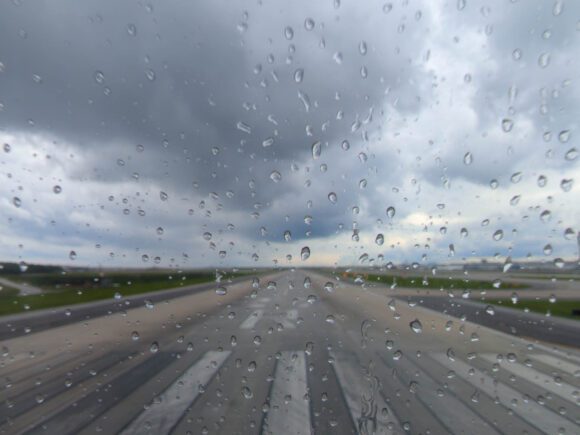
origin
Is Net Zero real or a mirage? We’re leaning towards a mirage. The promises made by airline leaders at IATA’s AGM in Boston in 2021 left us wondering. None of those who made promises will be around to deliver on those promises. Here is IATA’s SAF document for your review and our story from earlier this week.
Reuters notes that 2022 saw SAF production rise 200% from 2021 to 300 million liters. Great, we are 0.06% on the way to the 2050 target of 450 billion liters. If the industry can maintain 200% growth, we might hit the 450 billion target by 2034 – how realistic is this?
There is some promising news. Reuters notes: “Italian oil company Eni converted its traditional refinery in Venice into a biorefinery in 2014 and made the same move with its plant in Gela, Sicily, in 2019. It is planning to start production of its Eni Biojet SAF at the Sicily and Venice plants, which will produce up to 150,000 tonnes a year, enough to meet the needs of the Italian market for 2025 and 2030, according to a statement from the company. Eni is also considering the construction of two new biorefineries, one within its industrial site in Livorno, Italy, and one in Pengerang, Malaysia.”
From Malaysia, we have more news. The Straits Times reports, “What is also interesting for biologically megadiverse Malaysia is the abundance of feedstocks, such as microalgae, for these new fuels. Microalgae biofuel is devoid of the major drawbacks associated with oil crops and other biofuels.”
Airbus and Boeing, along with their airline customers, are working hard on finding a path to meet the stiff Net Zero goals.

It is positive news that SAF production is growing fast. It needs to grow very fast. Air travel is recovering unexpectedly; airlines are running out of seats, not just pilots. A380s are coming out of storage rapidly. Even if this aircraft costs (1Q23 data) $65 per seat/block hour or $33,500 per block hour to operate. Operating an A380 isn’t a flippant choice. But demand now makes the economics manageable.
Back to Malaysia. According to Petronas, Malaysia produces 660,000 barrels of liquids and approximately 7.0 billion cubic feet of gas daily. The country’s commercial reserves are estimated at over 17 billion barrels of oil equivalent from more than 400 fields, with gas making up three-fourths of the mix. The emergence of SAF offers Malaysia another role in energy supplies. How many other nations have this advantage?
The US is expected to be the global leader in SAF production. The US Department of Energy has a useful site on SAF. We recommend reading this report titled “SAF Grand Challenge Roadmap.” This grand challenge means “Meeting the two SAF Grand Challenge goals of 3 billion gallons of SAF per year by 2030 and 35 billion gallons of SAF per year by 2050 will require sets of activities that differ in focus to impact the two different periods..” In 2050 IATA estimates the global airline industry requires 450 billion liters of SAF. If the US can produce 35 billion gallons in 2050, that would meet 29% of IATA’s estimated requirements.
The just completed 2023 IATA AGM saw the event estimate SAF production at 69 billion liters by 2028. The conversion of oil refineries by ENI is a path other fossil fuel refiners are likely watching. The current energy infrastructure has taken decades of development. We are only two and a half decades away from 2050. There is progress, but the hurdle before us is probably underestimated.
Views: 3




